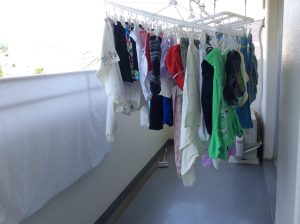
by Maureen | Apr 30, 2015 | 2015, Being Thankful, Cultural Differences, Divorce, Education, Family, Gratefulness, Humanity, Identity, Indonesia, Inspirational, Kids, Life Lesson, Motherhood, Parenting, Poverty, Responsibility, Responsibility, Scoops of Joy, Single Mother, Transportation, Travel, Vacationing, Working Mother, World Motherhood, Younger Children
 When it was time for my son to start school, I knew I wanted him to go to private school and thankfully, he was accepted into one of the international schools near our house.
When it was time for my son to start school, I knew I wanted him to go to private school and thankfully, he was accepted into one of the international schools near our house.
Private school has its pluses and unfortunately its negatives too.
My son’s classmates are from the upper-middle class, those whose spring breaks were spent going to Japan or Hong Kong to visit Disney Land. The same kids who also have their own iPads and the latest cell phones.
I realized this might cause a challenge for us—with me being a single mom, who had just recently returned to the corporate world—but I try not to let their different lifestyles make my son feel that he’s different.
So that’s why, on Easter weekend, I took him on a mini-getaway to my new job.
We did not take a taxi to get to my office, which is in a hotel. Instead, we rode the train like I do daily. I wanted to show him this is what his mother has to do to get to and from work. He got to see views that he won’t see from inside a nice air conditioned taxi or private car.
He loved staying in the hotel, just like most kids do, so we had a blast. But on our way home Sunday afternoon, the train was full. Not as full as it normally would be on a week day, still, we had to stand. We were leaning against the wall that separates the engine and the passengers. With the train swaying, it didn’t take long before my son told me he wished he could sit down.
Part of my mama bear instinct wanted to give him a seat but part of my tough love was to allow him to feel and experience how not everyone is blessed with a comfortable life.
I hope by showing him what I have to go through on a daily basis it will help him realize that I am working hard, that as the sole bread winner, I am providing for him. Yes, his father pays for school but outside of that, he is my responsibility and I’m doing my best to take care of him.
Yes, I told him I would love to be able to take him to Disney Land someday but for now, we have other priorities. Bills to pay, medicines to get for my parents, uniforms to alter, the list goes on.
Through our short train ride, my son was exposed to life “outside the fence”. What he saw through the windows of the train: makeshift shacks, houses built only inches away from the train tracks, kids playing soccer barefooted with garbage piling up around them. Hard life. The other side of glamorous Jakarta living.
We discuss this. He asked me why these people are living in such poor conditions. My heart ached having to explain that some people are not as fortunate as we are and that poverty is real.
We have a house to live in, a roof over our heads, while others came to the big city to chase their dreams and never made it. That’s why it is important for him to get his education so he can make a living for himself, one that hopefully he will love. I told him it is easy to look up and want what other people have but we need to be in the now, to be grateful for what we already have. To remember that there are those who need our help, who are struggling just to eat.
My wish is for my son to understand this, to grow up being grateful for what we have and to have a heart that is kind and willing to help others.
How do you explain poverty to your children?
This is an original post to World Moms Blog from our writer and single-mom to one in Jakarta, Tatter Scoops.
The image used in this post is attributed to Hideki Yoshida. It carries a Flickr Creative Commons attribution license.

by Melanie Oda (Japan) | Apr 17, 2015 | 2015, Awareness, Cooking, Cultural Differences, Culture, Domesticity, Expat Life, Eye on Culture, Family, Food, Health, Home, Identity, International, Japan, Life, Life Balance, Living Abroad, Maternal Health, Me-Time, Motherhood, Multicultural, SAHM, Social Equality, Stress, Time, Traditions, Womanhood, World Motherhood
 I start my morning here in Japan the same way every day: by cleaning out the drain trap.
I start my morning here in Japan the same way every day: by cleaning out the drain trap.
Not very pretty, I suppose, but I’ve learned the hard way that it needs to be done frequently and well. The drain traps here in Japan are metal mesh to prevent food from going down the drain. They get gross very quickly.
I’m pretty sure I started out my days when I lived in the US with a cup of coffee, which seems quite glamorous by comparison!
In spite of our gains in education or employment opportunities over the last century, much of our time as women gets taken up by mundane household tasks like this. Women all around the world are doing the same kind of things: laundry, food preparation, cleaning, child care, though in very different ways.
It makes me curious. How much of your time gets spent on “daily chores?” What kinds of things do you need to do every day? Do you do them alone, or do you have help?
Perhaps it is a boring topic, but for comparison I thought I would share a little bit of what housework is like here in Japan.
Laundry gets done daily in most families. We have washing machines, but most people don’t have dryers. In a country with cold winters, humid summers, and a rainy season, keeping up with the laundry feels like a daily battle! When the weather is not cooperative, laundry gets hung from curtain rails or any other overhang that can be found indoors. We have to bob and weave our way around the house. Imagine that Catherine Zeta Jones movie, but with laundry instead of lasers.
I do the shopping most days as well. This is quite common here in the greater Tokyo area, where storage space is limited and many people do not have cars to allow buying in bulk. Milk is sold by the liter; laundry detergent in 500ml bottles. The biggest shopping challenge is buying rice, which comes in 5 or 10kg bags.
I need to dust and vacuum every day. This is much more often than we did in the US growing up. I’m not sure why Japan is so dusty. Could it be the tatami floors? The single pane windows? The small living space? And more important than why, how can I make this dust accumulation stop?
Japanese cuisine seems to be gaining in popularity around the world. Many Japanese people eat a full meal in the morning (though this is slowly changing,) as well as at lunch and dinner. Japanese bento are also getting a lot of attention on the Internet for being nutritious as well as visually appealing. Overwhelmingly, the cooking is done by women. (Personally, since my children’s lunch is provided by the school, most days I cook twice.)
Like most families here, we have a gas stove-top, a rice cooker, and a microwave combined with an electric oven for cooking. My mother-in-law has a separate gas burner that can be placed on the table for doing things like sukiyaki or okonomiyaki, foods that are consumed as soon as they are cooked by the family from the same dish. My children are still a bit too small for me to attempt this at home.
I think many of us around the world are doing these same things, but the nitty-gritty of how we get it done and how often we do it are different. I can’t help but wonder what housework says about the values of the culture.
In the US, for example, many families take pride in a well-decorated home. In Japan that is much less important. (Perhaps because many women are spending all that time dusting and dodging laundry….)
What kinds of things are included in your daily duties? How do you feel about doing them?
This is an original post to World Moms Blog from our writer in Japan and mother of two, Melanie Oda.
The image used in this post is attributed to the author.
If you ask Melanie Oda where she is from, she will answer "Georgia." (Unless you ask her in Japanese. Then she will say "America.") It sounds nice, and it's a one-word answer, which is what most people expect. The truth is more complex. She moved around several small towns in the south growing up. Such is life when your father is a Southern Baptist preacher of the hellfire and brimstone variety.
She came to Japan in 2000 as an assistant language teacher, and has never managed to leave. She currently resides in Yokohama, on the outskirts of Tokyo (but please don't tell anyone she described it that way! Citizens of Yokohama have a lot of pride). No one is more surprised to find her here, married to a Japanese man and with two bilingual children (aged four and seven), than herself. And possibly her mother.
You can read more about her misadventures in Asia on her blog, HamakkoMommy.
More Posts

by Nancy Sumari | Apr 15, 2015 | 2015, Being Considerate, Being Thankful, Body Image, Family, Nancy Sumari, Religion, Tanzania, Traditions, Uncategorized, World Motherhood

Dear Zuri Gabriella,
You are 4! Just like that, in a blink of an eye. Now, before Dad and I blink again, and you are moving out of the house, please indulge me as I share my birthday wishes for your life as you grow.
Love God. Your faith and trust in Him will sustain you through this life. Pray for everything and sometimes pray for nothing.
Be Kind. I think you are the most beautiful girl in the world, but beauty is nothing without kindness. Be kind. Be gentle.
Be Happy. As you demonstrate every day, happiness is in the little things. Keep still; be centered. Happiness is all around.
Love Yourself. It is important, my darling girl, to see yourself through your own eyes, and to love yourself with your own heart.
Be Of Significant Service. Live a life of purpose. Your father and I will continue to raise you to understand the importance of serving others, especially those in need. Know that your service is of significance.
Do The Right Thing. This is not always easy. Even Mamma has made–and will continue to make–a lot of mistakes! You will, too. Everyone does. But, I strive to do the right thing and to be quick to apologize when I fail. As you always say, it’s important to “be nice.”
Love you always,
Mamma
This is an original post to World Moms Blog. Photo credit to the author.

by World Moms Blog | Apr 2, 2015 | 2015, Awareness, Being Thankful, Boys, Celebrations, Childhood, Culture, Guest Post, Health, Identity, India, Inspirational, Life, Life Lesson, Milestones, Motherhood, Priorities, Time, World Motherhood, Younger Children
 One moment everything seemed fine and the next I was creating a little puddle of tears on my Yogasana mat.
One moment everything seemed fine and the next I was creating a little puddle of tears on my Yogasana mat.
I emerged from the yogasana pose to find unexpected sobs bursting through my throat, catching me completely unawares. A little part of my mind wondered what this was all about. And then I realized this was probably because of a niggling dissonance within, a reaction to a new milestone in my son’s growth that had not yet been completely accepted or acknowledged. This is what had led to the sudden grey cloud near the heart, that burst through as tears.
This morning, as Abhishek, my son, was having his breakfast before leaving for school, he called out to me saying that there seemed to be a gap between his two lower incisors. I touched a tooth and immediately found it was loose. The milk tooth would soon fall. We grinned and Abhi told me about how Kirti, his school mate, already had two teeth missing. I thought of a couple of his other friends, senior to him by a year, wearing gap-toothed smiles with part-embarrassment, part -pride. Now he would be a part of that gang too.
As we waited at the bus-stop for his school bus, we talked of the concept of the tooth-fairy. We both agreed that the concept was “cute”. I bid him bye, returned home and resumed my morning chores.
But somewhere in the heart, deep, deep down, the unarticulated thought had arrived – our little baby is about to lose his baby teeth. How did the years fly by so fast? And that would have been the genesis of the tears.
The innocence and unsullied grace of childhood are truly magical and seem long-lasting. But the pace of change and growth can actually be so rapid, that the heart can seem overwhelmed. Scarcely does a new milestone–a habit, a skill, or a new activity–set in, than the “Finish” line for that zooms forward, and before one knows it, it is time to say goodbye to yet another phase of one’s child’s growing years.
So much to cherish and so little time! It seems like it was only yesterday that I was rhapsodizing over Abhishek’s four new, shiny little teeth and feeling nostalgic about toothless, gummy smiles. And now it’s time for those very teeth to go!
“So what?”, one may wonder. A purely practical approach to this whole thing would be that his physical growth is going on fine and that I ought to be feeling reassured!
But to me it seems to be much more than that. His shaky little tooth tells me a lot of things. It reminds me that he is growing up quickly and that the only mandate I have been given from the Universe is to give him love, pure and unadulterated, intense and in every moment. It shows me the passage of the seasons of time – the travails of toddler-hood have given way to heart-touchingly earnest attempts at responsibility for this sweet-yet-solemn almost-six-year-old.
But most of all, the tooth reminds me that “this too shall pass!”
So must change be heralded by tears? Not at all. Something tells me that some of the tears were tears of regret, for all those “Not now please, I am busy” moments, when I allowed temporary realities to hijack my energies away from the greater priority of sharing my time and care with him.
Those moments are irretrievable and all I can hope is that this tooth has taught me a valuable learning. And then there were a few tears of concerns: am I ready to guide him right as he reaches a new phase of growth? As ready as I will ever be, I guess.
And then there were tears of joy: my little one, darling creature of the Universe, is growing up.
Motherhood seems like a permanent stage of “Work in Progress”. There is no “Finished Product”, just a heart that smiles, cries, is pulled and stretched and learns to give some more.
This is an original guest post from Piya Mukherjee in Mumbai, India; Mother, Corporate Trainer, Director.
The image used in this post is attributed to Stephanie Sicore of Young@Art. It holds a Flickr Creative Commons attribution license.
World Moms Blog is an award winning website which writes from over 30 countries on the topics of motherhood, culture, human rights and social good. Over 70 international contributors share their stories from around the globe, bonded by the common thread of motherhood and wanting a better world for their children.
World Moms Blog was listed by Forbes Woman as one of the "Best 100 Websites for Women 2012 & 2013" and also called a "must read" by the NY Times Motherlode in 2013. Our Senior Editor in India, Purnima Ramakrishnan, was awarded the BlogHer International Activist Award in 2013.
More Posts

by Sophie Walker (UK) | Mar 23, 2015 | Celebrations, Gratefulness, Sophie Walker, UK, Weather, World Motherhood
 There are clouds over London again. But if you stop and look up and squint, you will see a tell-tale pearlescent lining that was not there before.
There are clouds over London again. But if you stop and look up and squint, you will see a tell-tale pearlescent lining that was not there before.
The trees along this street stand tall and bristle-dark as they have through the winter months. But if you stop and look up and squint, you will see small, white buds that were not there before.
When the mornings come now, they arrive a little earlier on a bobbing melody of birds.
The children wake more easily now, and swing their bare legs out of bed without a wince.
Outside, the people at the bus-stop at the end of the road turn to each other and smile and nod before they board the fat red double-decker that bears them away to the city.
I feel a lightness in me that has been absent for a while.
At home, I unlatch windows that have stiffened and swollen over the last few months. They groan, then give, suddenly, in my hand, and swing open. The outside air rushes in. It smells different.
In the back garden, my birthday rose is turning green.
I stand quietly then smile and give thanks.
Other people’s words come to me. I think of e.e. cummings’ poem in Just, which sings of a world that is “mud-luscious” and “puddle-wonderful.” I think of Philip Larkin’s Trees and its whisper: “Begin afresh, afresh, afresh.” And I think of Gerard Manley Hopkins asking: “What is all this juice and all this joy?”
What is it? It’s Spring. The seasons have turned, at last.
How will you celebrate?
This is an original post to World Moms Blog by Sophie Walker of the United Kingdom. Photo credit: Karen Arnold. This picture has a public domain license.

Writer, mother, runner: Sophie works for an international news agency and has written about economics, politics, trade, war, diplomacy and finance from datelines as diverse as Paris, Washington, Hong Kong, Kabul, Baghdad and Islamabad. She now lives in London with her husband, two daughters and two step-sons.
Sophie's elder daughter Grace was diagnosed with Asperger Syndrome several years ago. Grace is a bright, artistic girl who nonetheless struggles to fit into a world she often finds hard to understand. Sophie and Grace have come across great kindness but more often been shocked by how little people know and understand about autism and by how difficult it is to get Grace the help she needs.
Sophie writes about Grace’s daily challenges, and those of the grueling training regimes she sets herself to run long-distance events in order to raise awareness and funds for Britain’s National Autistic Society so that Grace and children like her can blossom. Her book "Grace Under Pressure: Going The Distance as an Asperger's Mum" was published by Little, Brown (Piatkus) in 2012. Her blog is called Grace Under Pressure.
More Posts

by Mirjam | Mar 9, 2015 | 2015, Cultural Differences, Netherlands, Parenting, Responsibility, World Motherhood
 My parents were born and raised in Surinam. They moved to the Netherlands in the 70’s and raised their children there. Though not completely oblivious to Dutch culture, the way my parents raised me was greatly influenced by the motherland. That includes the way chores were done.
My parents were born and raised in Surinam. They moved to the Netherlands in the 70’s and raised their children there. Though not completely oblivious to Dutch culture, the way my parents raised me was greatly influenced by the motherland. That includes the way chores were done.
In Surinam, and I’m guessing in many non-Western (“Second World”) cultures, chores are simply a part of life. They are part of a daily routine in which all family members share the responsibility of running a household. As a kid, you go to school, do your chores and play in the time that is left. Dinners are prepared together, cleaning is a joint effort and in some cases, children even help parents with their jobs. Except for that last part, this is basically the way I was raised.
My Dutch husband has been raised completely differently. Chores were the responsibility of his parents. They took care of everything and as he got older, chores were gradually given to him as a way to teach him responsibility. I must add that not all Dutch kids are raised exactly the same and that there are many varieties, but the difference between Dutch and Surinam upbringing is apparent.
One of the thoughts behind Dutch upbringing: “Let children be children, let them play. Let them enjoy childhood without too many responsibilities. The time for responsibilities will come soon enough.”
Personally this thought appeals to me yet also conflicts me. I fear that my children will become entitled, spoiled and unable to deal with responsibilities if I simply let them play.
One of the thoughts behind Surinam upbringing: “Chores are normal and necessary and help kids to become responsible independent adults. Every member of the family has to do their share, family comes before individual needs.”
Having to raise children now myself, I need to find a balance between these very different approaches. And it is not easy to find a middle ground. My husband tends to have a “Here, let me do it for you” attitude. And I have a more “I am not your maid, I will teach you to do it yourself” attitude.
I have a sense of contentment and pride when I teach my kids to do their chores independently and without complaint. But I also understand how nice it is for a child to be shielded from too much responsibility and to simply be taken care of. I want to let my kids enjoy their free time in between school, homework and sports, but I also want them to help around the house and feel like they share some of the responsibility of our household.
And so I go back and forth. Some of my Dutch friends drop their jaws or raise their eyebrows when they learn that my kids clean, vacuum, mop their rooms and scrub the toilets every weekend. And my mother will feed my guilt by asking me why I don’t let the kids help around the house more.
My background does have one distinctive benefit. When my children moan about having to do chores, I tell them about my childhood and they stop complaining immediately.
What are your thoughts about chores? Does the way you raise your kids look more like the Dutch way or the Surinam way?
This is an original post to World Moms Blog by Mirjam of The Netherlands. Photo credit to the author.
Mirjam was born in warm, sunny Surinam, but raised in the cold, rainy Netherlands.
She´s the mom of three rambunctious beauties and has been married for over two decades to the love of her life.
Every day she´s challenged by combining the best and worst of two cultures at home.
She used to be an elementary school teacher but is now a stay at home Mom. In her free time she loves to pick up her photo camera.
Mirjam has had a life long battle with depression and is not afraid to talk about it.
She enjoys being a blogger, an amateur photographer, and loves being creative in many ways.
But most of all she loves live and laughter, even though sometimes she is the joke herself.
You can find Mirjam (sporadically) at her blog Apples and Roses where she blogs about her battle with depression and finding beauty in the simplest of things. You can also find Mirjam on Twitter and Instagram.
More Posts - Website
Follow Me:



 When it was time for my son to start school, I knew I wanted him to go to private school and thankfully, he was accepted into one of the international schools near our house.
When it was time for my son to start school, I knew I wanted him to go to private school and thankfully, he was accepted into one of the international schools near our house.

















